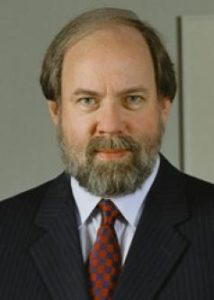Intent To Surrender In Bankruptcy Yields All Rights: Court
Bankruptcy Law Roundup
Sharp  Thinking
Thinking
No. 187 Perspectives on Developments in the Law from Sharp-Hundley, P.C. September 2020
Intent To Surrender In Bankruptcy Yields All Rights: Court
The proposition that void judgments may be attacked at any time presumes that the judgment is being attacked by one with a valid interest in doing so, and when a debtor has surrendered property in bankruptcy proceedings he or she no longer has a valid interest in opposing foreclosure proceedings.
So ruled the Appellate Court’s Second District recently. Bank of N.Y. Mellon v. Rodriguez, 2020 IL App (2d) 190143.
In Rodriguez, debtors went into bankruptcy years before the bank was granted a default judgment in its foreclosure action. In the bankruptcy, debtors gave notice they were surrendering the property at issue. Yet years later they discovered that the process server in the foreclosure action was not properly appointed, which allegedly made the judgment void. They moved to vacate the judgment under 735 ILCS 5/2-1401. The trial court dismissed the § 2-1401 petition under the doctrine of judicial estoppel.
Defendants appealed, arguing that a void judgment may be attacked at any time. In a case that was argued on judicial estoppel theory, the Appellate Court avoided expressly using that theory in its decision.
Citing In re Failla, 838 F.3d 1170 (11th Cir. 2016), it said that the word “surrender” “requires that debtors relinquish their rights to possess property such that they may not oppose state foreclosure action.” Quoting Ibanez v. U.S. Bank N.A., 856 F. Supp. 2d 273 (D. Mass. 2012), it said that “to argue that he was injured by the invalid foreclosure of a property in which he no longer held any legal or equitable interest defies logic.”
“To the extent that a declaration to surrender property in bankruptcy precludes the debtor’s ability to even oppose foreclosure in state court, defendants seemingly had no remaining interest to protect or relief to obtain theory in their § 2-1401 petition,” the court said.
The debtors argued that the notice of intent filed in the bankruptcy was merely a notice document and not an effective surrender, but the Appellate Court disregarded that argument.
85% Of Accrued Vacation Pay Exempt In Bankruptcy
Vacation pay is a form of wages and 85% of unpaid wages are exempt from creditors’ claims in Illinois, so 85% of accrued vacation pay – no matter now great that amount may be – is exempt in bankruptcy, the United States Court of Appeals for the Seventh Circuit has ruled.
In In re Burciaga, 944 F.3d 681 (7th Cir. 2019), the court dealt with an appeal where the lower courts had said the state legislature did not intend for the 85% exemption to apply in bankruptcy. The appeals court reversed those decisions.
Dealing first with the incorporation of state exemption law into federal bankruptcy practice, former Chief Judge Frank Easterbrook said that “[w]hatever is exempt under state law is exempt under federal law too. State legislators need not know about this rule; exemption in bankruptcy happens as a result of [11 U.S.C.] § 522”.
The bankruptcy trustee argued that treating large amounts of unpaid wages as exempt would be unjust to creditors. “[B]ut the Bankruptcy Code is what it is and cannot be overridden in the name of equity,” Easterbrook wrote.
Vehicular Fines Are Administrative Expenses In Chapter 13
Vehicular fines incurred during the course of a Chapter 13 bankruptcy are administrative expenses that must be paid promptly and in full, the Seventh Circuit U.S. Court of Appeals has held.
In In re Steenes, 942 F.3d 934 (7th Cir. 2019), a sequel to In re Steenes, 918 F.3d 554 (7th Cir. 2019) (see Sharp Thinking No. 172 (Sept. 2019)), the scofflaw debtors ran up substantial unpaid parking and other tickets while under their Chapter 13 plans. The lower courts ruled these fines were not administrative expenses.
Noting the Bankruptcy Code provision that “property or services necessary for the debtor’s performance under the plan” are administrative expenses and debtors’ argument that operating their cars was necessary to fund the plan, the court said it “won’t do to ask whether violating local law was itself ‘necessary’; the question is whether operating a vehicle is necessary to earn the money needed to perform the Chapter 13 plan.” The Seventh Circuit reasoned that it was, and the judgments of the lower courts were reversed.
But even that did not end the litigation regarding scofflaw debtors. In In re Cherry, 963 F.3d 717 (7th Cir. 2020), the court dealt with a recalcitrant bankruptcy court which allowed debtors to retain vehicles in the estate after confirmation by simply checking a box on a form, thus seeming to make those vehicles immune from booting and other ticket enforcement measures. The Seventh Circuit rejected that system.
“A bankruptcy court may confirm a plan that holds property in the estate only after finding good case-specific reasons for that action,” it held. And, it said, “a desire to obtain free parking, or otherwise get the benefit of a car without satisfying all ongoing expenses of driving, is not a good reason.”
